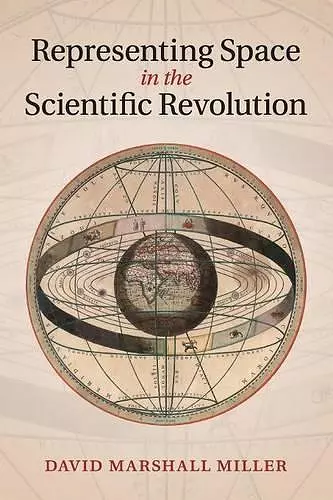Representing Space in the Scientific Revolution
Format:Paperback
Publisher:Cambridge University Press
Published:15th Sep '16
Currently unavailable, and unfortunately no date known when it will be back

Using an integrated philosophical and historical approach, this book explores the fundamental shift in understandings of space in the scientific revolution.
Using an integrated historical and philosophical approach, this book explores the origin of modern physics in Copernicus, Kepler, Galileo, Descartes, Newton, and others. It analyzes representations of space in the scientific revolution, and will be essential reading for scholars and students of the history and philosophy of science.The novel understanding of the physical world that characterized the Scientific Revolution depended on a fundamental shift in the way its protagonists understood and described space. At the beginning of the seventeenth century, spatial phenomena were described in relation to a presupposed central point; by its end, space had become a centerless void in which phenomena could only be described by reference to arbitrary orientations. David Marshall Miller examines both the historical and philosophical aspects of this far-reaching development, including the rejection of the idea of heavenly spheres, the advent of rectilinear inertia, and the theoretical contributions of Copernicus, Gilbert, Kepler, Galileo, Descartes, and Newton. His rich study shows clearly how the centered Aristotelian cosmos became the oriented Newtonian universe, and will be of great interest to students and scholars of the history and philosophy of science.
'In this exciting new study, Miller argues that the Scientific Revolution depended crucially on the adoption of an oriented representation of space, privileging parallel lines instead of centers. From this novel perspective he throws fresh light on the disparate contributions of Averroës, Gilbert, Kepler, Galileo, Descartes, Fermat, Roberval, Hooke and Newton. Highly recommended for all those with an interest in the birth of modern cosmology.' Richard T. W. Arthur, McMaster University, Ontario
ISBN: 9781107624719
Dimensions: 228mm x 152mm x 14mm
Weight: 370g
250 pages